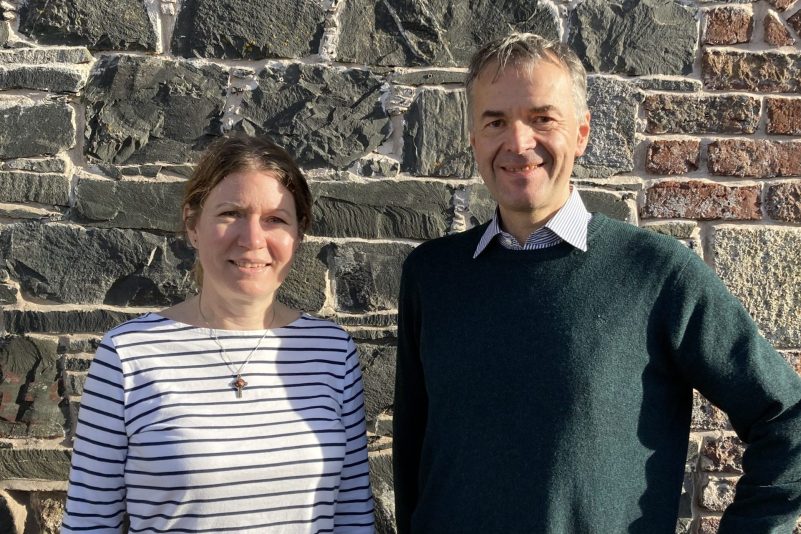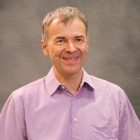Introduction to the LUNZ Hub: Priorities and Objectives

In May 2024 we sat down with LUNZ co-leads Lee-Ann Sutherland and Heiko Balzter to learn about why land use is an important research theme for funding, and the role of the LUNZ Hub in making a difference. Read on for a summary of the key takeaways or watch the full video below.
Professor Lee-Ann Sutherland is an interdisciplinary social scientist and director of the International Land Use Study Centre at the James Hutton Institute in Aberdeen. Professor Heiko Balzter is a physical geographer at the University of Leicester and leads the Institute for Environmental Futures.
What do we mean by land use?
L-AS:
In a lot of ways land use is pretty much what it says on the tin: the way land is used. Anything that happens on land, whether that’s growing crops, or trees, or recreation, or housing. So there’s a broad range of things that are encompassed within that category.
HB:
The important thing about land use is that quite often there are multiple uses on the same piece of land. So one thing to be mindful of is that when we see an agricultural landscape, for example, there might be a public footpath crossing it, and so landscapes are inherently multifunctional, and they deliver multiple different benefits- crops, food, facilities for recreation.
Why is land use so important in the journey to Net Zero?
HB:
Agriculture and forestry and other land uses in the UK are at the moment a source of greenhouse gases, so contribute to global warming and the climate crisis. We want to get the land use sector and agriculture into a balance with nature, so we want to make it into a sink of carbon ideally, but at least make it carbon neutral. There are many ways in which we can do this, and in principle you could make a positive contribution to helping solve the climate crisis rather than contributing to it.
L-AS:
Land is already acting as a carbon sink, just not to the degree that it could be. And it’s already producing a lot of benefits for society. It’s the trade-offs in negotiating what we can afford and what we prioritise that makes land use tricky.
Land is also a really emotive subject: people own land, and sometimes they’ve owned it for generations back through their families, so their sense of control and pride in how they manage their land is well established in British culture. It’s really important that we take those private landowners with us while recognising that the land that they own is providing benefits to everyone: everyone needs clean air, everyone needs places for recreation. There are an incredible range of benefits coming from this land that is held by a fairly small number of people, so figuring out how to square that circle and enable farmers and other land managers to make viable business decisions and have that confidence going forward, at the same time as providing all of these other things for the people who are users of that land is one of the biggest challenges we face.
Is land use behind other sectors in achieving net zero?
L-AS:
I’m not entirely convinced it is behind- farms have been sequestering carbon, and have been providing multiple benefits for a long, long time. So to say that we’re behind is to question how you value different industries. One of the particular challenges with land is that pretty much everything happens on land, so it’s about how you cut that pie in terms of who’s responsible for what, and what constitutes sequestration, or is allocated to particular sectors.
I think that farmers have a reputation for being resistant to change, and I see it more as a form of path-dependence. These are multi-generational family holdings by and large, and they want to be passing their land on in good heart to the next generation. I think for that reason we’ve seen farmers taking a step back and waiting to see how the cards are going to play out, because they want to have the confidence for the generations to come.
HB:
I don’t believe it’s behind in comparison to other sectors, but land use and agriculture systems are a lot more complex than some technological emission sources of carbon and greenhouse gases. That is because if we burn a tonne of coal, you know how much carbon is in the atmosphere, and we can replace that with another source of energy, so we know how much we should be saving.
In a natural system we are dealing with complex soil systems with different carbon contents, different amounts of organic matter from microbiological communities, different types of species of plants and animals living in that ecosystem, different land use practices (so different tillage, different soils, different crop rotations), and weather variability impacting everything. So greenhouse gas fluxes from agriculture are incredibly complex. What the LUNZ Hub is working on is identifying what is achievable, how much we can bring the emissions down, and how much we can encourage taking carbon out of the atmosphere and storing it in natural systems.
What is the LUNZ Hub and how is it going to make a difference?
HB:
The Land Use for Net Zero Hub also looks at nature and people, and we need to be mindful that the different environmental policies in the UK all are connected, and we can only succeed in our environmental ambitions if we are treating the environment in a holistic way. So systems thinking is really important in achieving all the policy objectives on the environment.
The LUNZ Hub is part of a major investment by UK Research and Innovation in collaboration with different government departments and the devolved administrations. It’s coordinating a large programme of about 24 million pounds investment that brings together research evidence, carries out new research, and translates that into policy relevant evidence that is then fed into the decision making processes, both in Westminster and in the devolved administrations, to inform their climate action planning.
We are trying to synthesise information that’s already out there, connect researchers to policy makers at a time when the evidence is needed in the policy domain, and accelerate the journey towards net zero. We need to do this in a way that also benefits nature conservation and the way people are using landscape- both in terms of economic benefits and livelihoods of communities and farmers, but also other forms of land uses that we talked about.
L-AS:
For me there’s two key things, the first is critical mass. We are 34 organisations, we have a wide variety of expertise, and we really feel that this is what’s needed to move us forward in meeting our net zero and other targets. The challenge that policymakers face is that they need to be reelected every five years, and there are some really unpopular decisions that need to be taken if we’re going to meet these different targets. It doesn’t help if your scientific community is promoting 14 different things- we need a unified voice saying ‘this is the way forward, this is what we want to do, this is what needs to happen’.
That’s where the Lunz Hub is particularly well placed- it has been really encouraging to see just how much policy involvement we have. Quite often as scientists we feel like we’ve got the way forward, but we’re just not really sure who to tell or how to communicate it. In LUNZ we have policymakers directly embedded with our consortium activities, who are keenly interested to find out what we want to do, what we need to do, and how we can meet these targets. I’m really optimistic that we’re going to be able to make an appreciable difference.
And the evidence based decision making is the other thing the LUNZ Hub will bring, which is the confidence amongst policymakers that we have the evidence that they need to make good decisions.

Professor Heiko Balzter
Principal Investigator

Professor Lee-Ann Sutherland
Principal Investigator
Subscribe to our Newsletter
A quarterly update of all LUNZ Hub activities, events and news stories.
